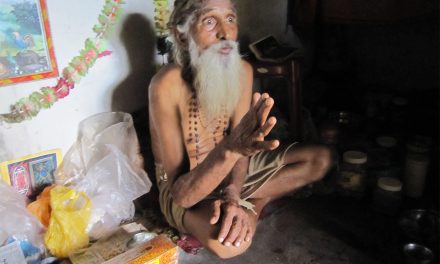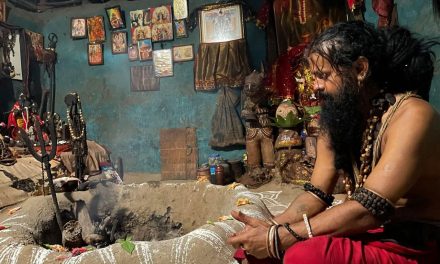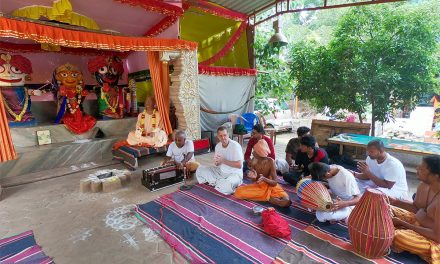Dayalu Baba making tea for visitors to the ashram. He cooks on a mud stove using wood fire. Gas cylinders have not yet come to these areas. Other than red tea, milk and sugar he also puts cardamom and cloves.
Tea is seen as a cheap and quick food, especially among sadhus who don’t have much money. Often they don’t have milk so they drink red tea with salt and ginger, instead of the usual milk and sugar tea.
The Britannia Marie Gold biscuit, or a cheaper local version, is often combined with the tea and makes up the breakfast or dinner.
These are people who more or less eat one proper meal a day at noon (usually rice, dahl and chutney). For breakfast and dinner they try to make do with things like tea, which are mostly water. They fill their stomach with water, and wait for actual food at noon. They also work physically a lot more than city people like myself. They are always digging in the garden, climbing mountains and trees, and doing all sorts of physical labor which I could never do.
There is no money in the villages. They eat the rice they grow themselves. Mostly they can’t just buy vegetables at will, because it costs a lot of money. They have to be very frugal with what they buy and what they eat. They have to trade their rice paddy if they want to buy something, and you don’t get a very good deal when you sell your rice paddy.
So their eating of tea isn’t for a stimulant or as sense enjoyment. It’s simply part of the hard struggle of life to maintain their bodies with little money.
Some of you may have noticed Baba pouring the first spoon of tea into the cooking fire. In Odisha most sadhus worship fire as Bhagavan in elemental form. All fire is considered as a yagya to them, and after cooking they pour the first amount into the fire as an offering to Bhagavan.
Receive our daily email newsletter on Hinduism, Yoga, Meditation, Ayurveda and Natural Healing.










